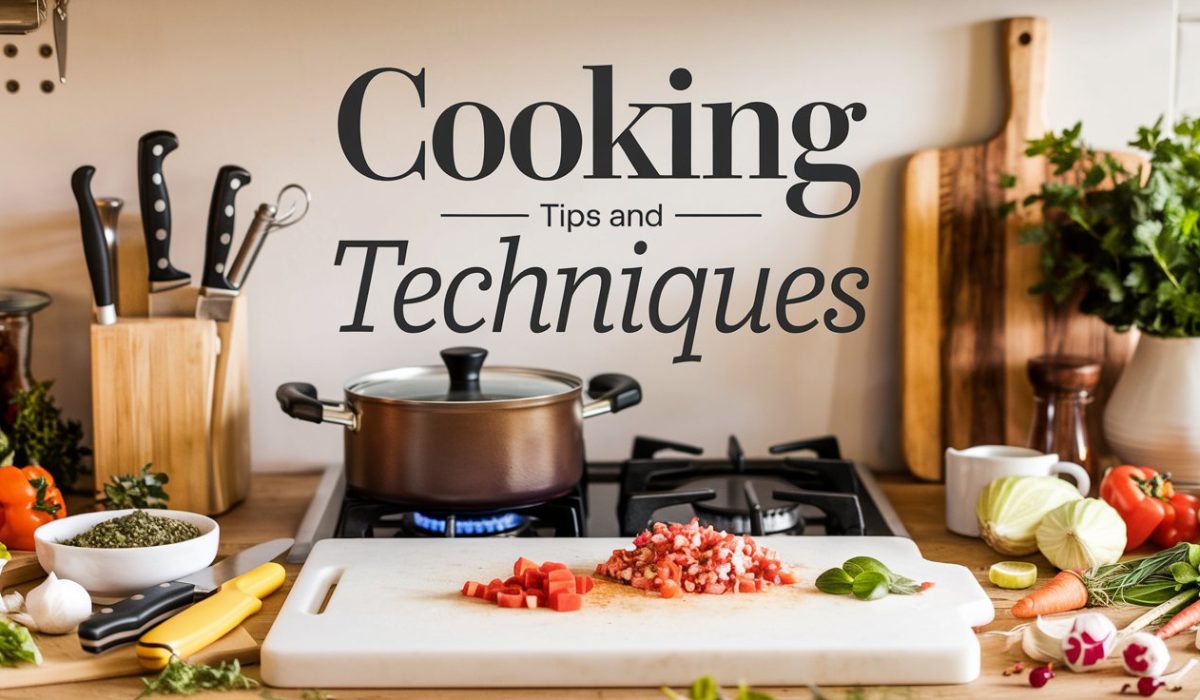Cooking Tips and Techniques: Elevate Your Culinary Skills
Whether you’re a beginner in the kitchen or looking to sharpen your culinary skills, mastering essential cooking tips and techniques can make a significant difference. Here are some helpful strategies to enhance your cooking experience and create delicious meals with confidence.
1. Mise en Place: Prepare Before You Cook
What is Mise en Place?
Mise en place is a French culinary phrase meaning “everything in its place.” It refers to the practice of preparing and organizing all your ingredients and tools before starting to cook.
Why is it Important?
By measuring, chopping, and arranging your ingredients beforehand, you minimize stress and ensure a smoother cooking process. This practice helps prevent forgetting crucial components, allowing you to focus on the actual cooking.
2. Use Fresh Ingredients for Better Flavor
Choosing Fresh Ingredients
Fresh ingredients can dramatically improve the taste and quality of your dishes. When possible, buy seasonal produce, as it is typically fresher and more flavorful.
Storage Tips
Store your ingredients properly to maintain their freshness. For instance, keep herbs in water or wrapped in damp paper towels, and store fruits and vegetables in the crisper drawer of your fridge.
3. Master Basic Cooking Techniques
Essential Techniques to Learn
- Sautéing: A quick cooking method that uses a small amount of oil over high heat to cook food quickly. Perfect for vegetables and proteins.
- Roasting: Cooking food in the oven at high temperatures to develop rich flavors. Ideal for meats and vegetables.
- Boiling: Cooking food in water or broth at high temperatures. Great for pasta, grains, and vegetables.
- Baking: Cooking food evenly in an oven using dry heat. Essential for pastries, breads, and casseroles.
Practice Regularly
Incorporate these techniques into your cooking to build confidence and versatility in the kitchen.
4. Seasoning is Key
Understanding Seasoning
Seasoning enhances the flavor of your dishes. Salt is the most common seasoning, but herbs, spices, and acids (like lemon juice or vinegar) also play crucial roles.
Tips for Seasoning
- Taste as You Go: Regularly taste your food to adjust seasoning gradually.
- Layer Flavors: Add seasonings at different stages of cooking to build depth in flavor. For instance, season meats before cooking and add fresh herbs at the end for brightness.
5. Invest in Quality Tools
Essential Kitchen Tools
Investing in a few quality kitchen tools can make your cooking experience more enjoyable and efficient. Here are some must-haves:
- Chef’s Knife: A versatile knife for chopping, slicing, and dicing.
- Cutting Board: A sturdy surface for prep work.
- Non-stick Skillet: Great for sautéing and frying with minimal oil.
- Measuring Cups and Spoons: Essential for accurate ingredient measurements.
- Mixing Bowls: Useful for prepping and mixing ingredients.
6. Experiment and Have Fun
Embrace Creativity
Don’t be afraid to experiment with different ingredients, flavors, and techniques. Cooking should be an enjoyable and creative process.
Learn from Mistakes
If a dish doesn’t turn out as planned, view it as a learning opportunity. Reflect on what went wrong and how you can improve next time.
Conclusion
Improving your cooking skills takes time and practice, but incorporating these tips and techniques can lead to delicious results and more enjoyable cooking experiences. Remember, the key is to prepare, practice, and have fun in the kitchen. Happy cooking!
